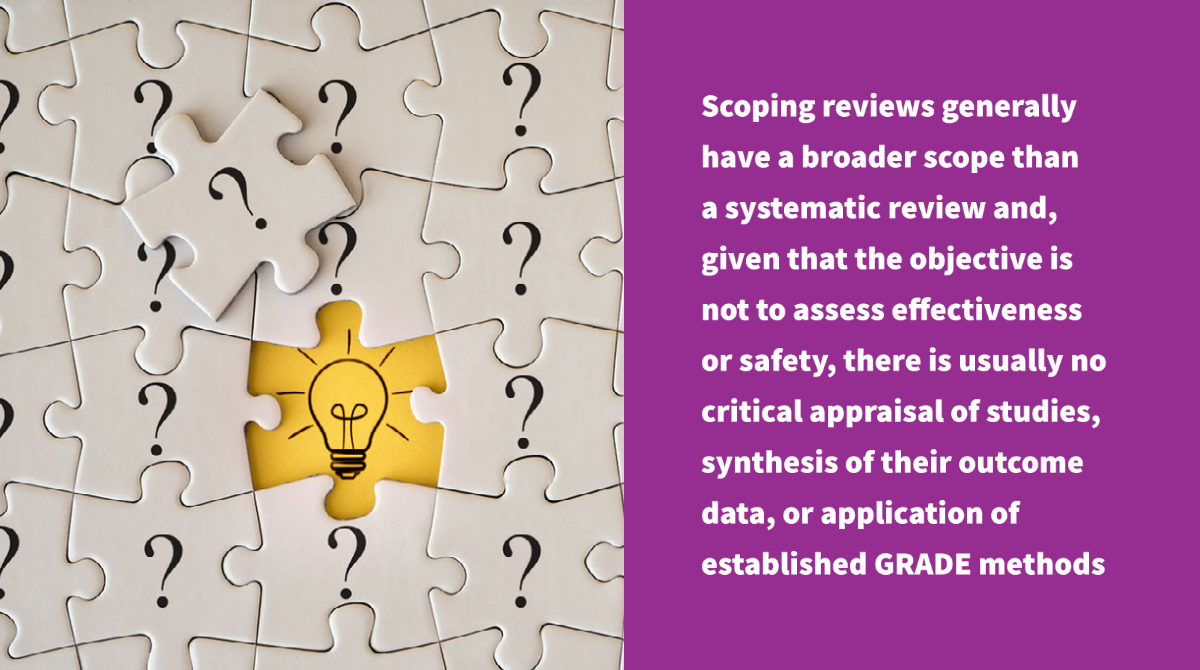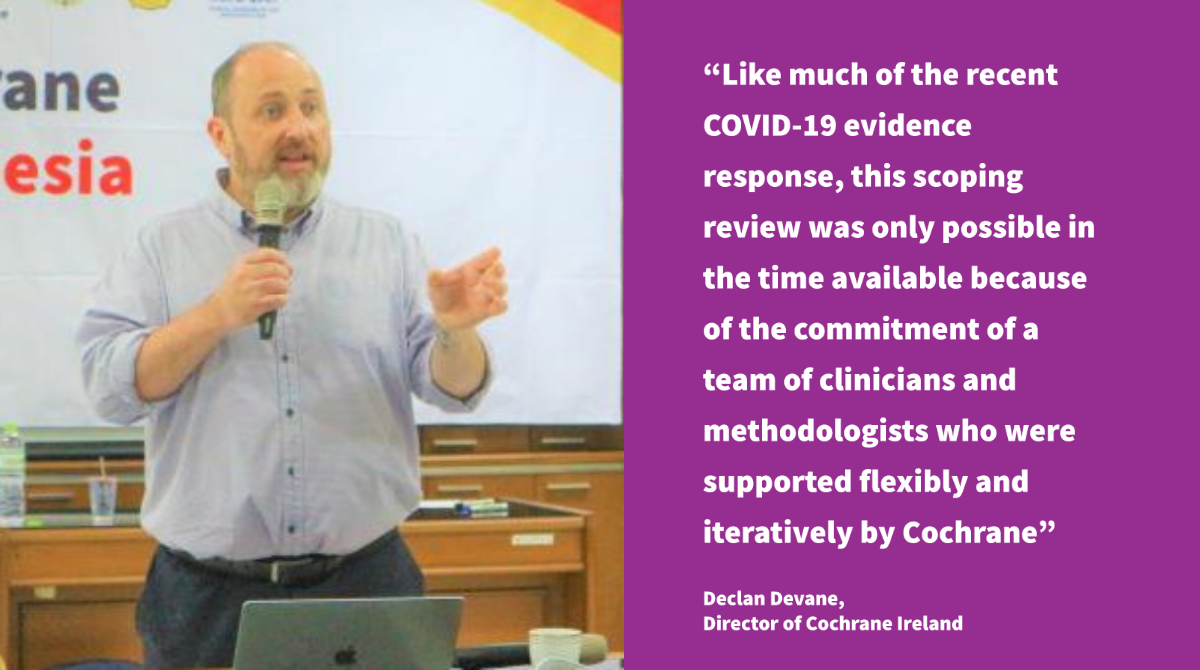
Cochrane has expanded its response to COVID-19 by publishing two rapid scoping reviews about care bundles in the intensive care unit (ICU) and measures implemented in schools to contain the SARS-CoV-2 virus. Both reviews were commissioned by the World Health Organisation to inform their guidance. The reviews serve as exemplars for how similar research could be published by Cochrane beyond the pandemic.
Cochrane does not ordinarily publish scoping reviews, which differ from systematic reviews in important ways. Rather than summarise the results of studies to assess the effect of an intervention or accuracy of a diagnostic test, the purpose of a scoping review is to identify the amount and type of evidence relating to a given topic. Scoping reviews can play an important role for researchers and decision makers by mapping and characterizing an evidence base to highlight gaps or inform the design of a further systematic review.
Scoping reviews follow many of the same steps of a systematic review including pre-specification of methods, and a systematic approach to identify, sift and present the evidence. They generally have a broader scope than a systematic review and, given that the objective is not to assess effectiveness or safety, there is usually no critical appraisal of studies, synthesis of their outcome data, or application of established GRADE methods.

The reviews followed a set of interim recommendations set by the Cochrane Editorial and Methods Department (EMD), which were based on existing conduct and reporting standards and guidance.[refs 1,2,3] Areas for development have been highlighted that would be needed to ensure quality and consistency on a wider scale, but the reviews serve as an important proof of concept that we hope to build upon in the future to continue meeting the diverse needs of stakeholders.
Declan Devane, Director of Cochrane Ireland and one of the authors of the ICU care bundles scoping review commented “I think it critical that Cochrane respond to the evidence synthesis needs of health decision makers. Like much of the recent COVID-19 evidence response, this scoping review was only possible in the time available because of the commitment of a team of clinicians and methodologists who were supported flexibly and iteratively by Cochrane. Processes were adapted and flexed to meet commissioners needs resulting in a good experience for all concerned. The learning from our experience will help inform future scoping review processes. I believe firmly that the relevance and value of Cochrane will depend on its ability to respond innovatively, and promptly, to decision-maker needs. This is another example that shows we can.”

A range of initiatives are underway to reflect on what has been achieved by the Cochrane community during the pandemic, including the Cochrane COVID-19 supplement that published this week. The Central Executive Team is considering whether and how new review and article types should be pursued beyond the pandemic situation to meet user needs and accommodate innovation in evidence synthesis. A web-based survey will be circulated in January to invite Cochrane staff and members to share their views.
- PRISMA extension for Scoping Reviews explanatory paper (Tricco, AC, Lillie, E, Zarin, W, O'Brien, KK, Colquhoun, H, Levac, D, Moher, D, Peters, MD, Horsley, T, Weeks, L, Hempel, S et al. PRISMA extension for scoping reviews (PRISMA-ScR): checklist and explanation. Ann Intern Med. 2018,169(7):467-473.)
- JBI Manual for Evidence Synthesis. Chapter 11: Scoping Reviews (Peters MDJ, Godfrey C, McInerney P, Munn Z, Tricco AC, Khalil, H. Chapter 11: Scoping Reviews (2020 version). In: Aromataris E, Munn Z (Editors). JBI Manual for Evidence Synthesis, JBI, 2020.)
- Lockwood et al 2019 practical guidance (Lockwood C, Borgess dos Santos K, Pap R. Practical guidance for knowledge synthesis: scoping review methods. Asian Nursing Research. 2019,13(5):287-94.)

